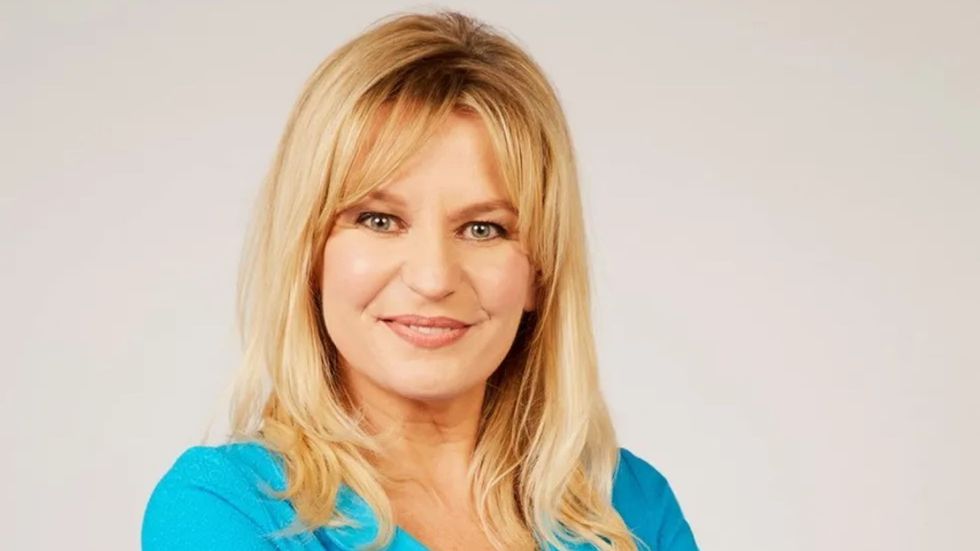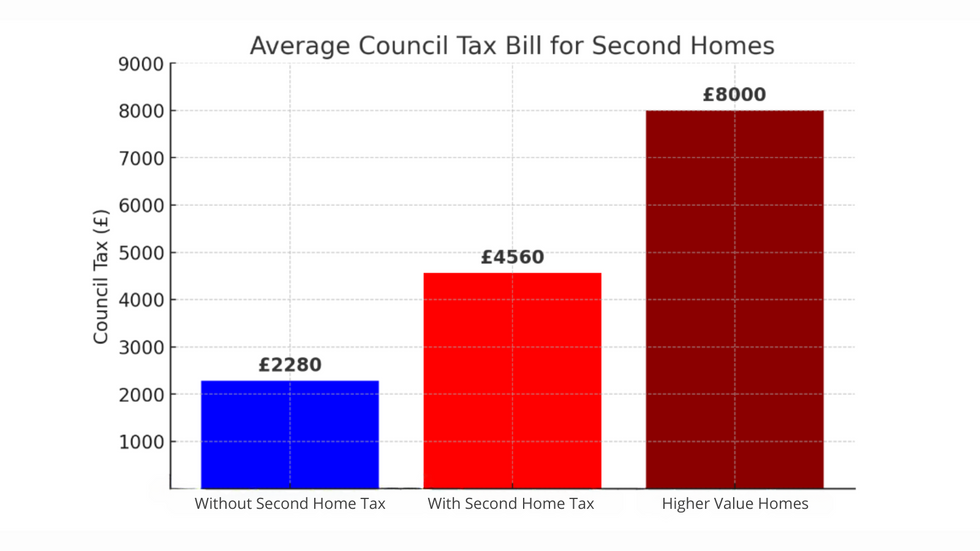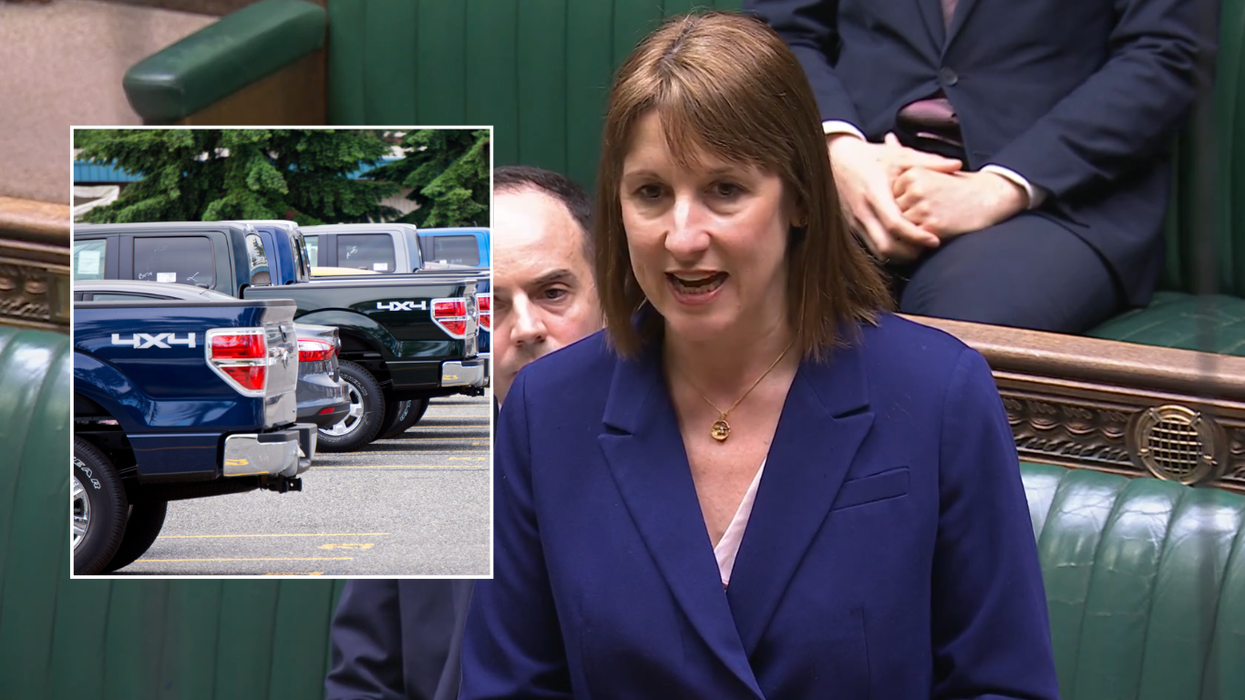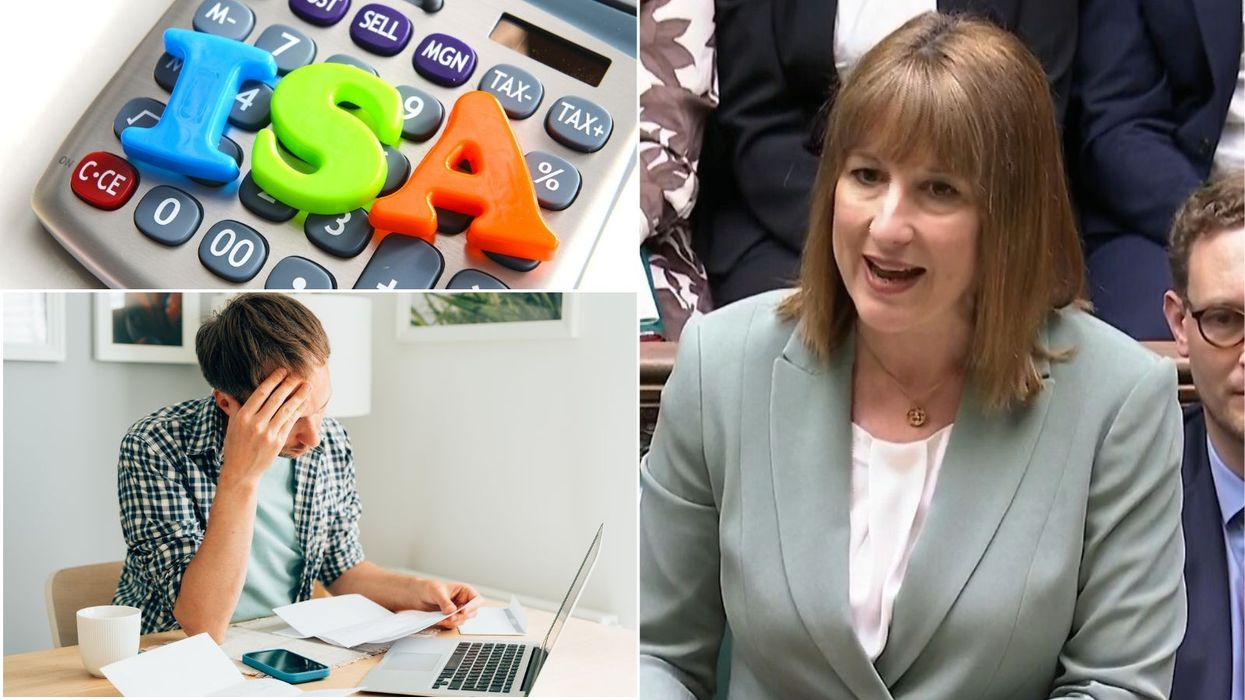Royal Navy veteran blasts Labour for 'letting down' Britons as household bills hike - 'Like robbing Peter to pay Paul!'
GBNEWS
Jasmine Birtles explains what is happening to your money in April and how to manage it
Don't Miss
Most Read
Welcome to ‘Awful April’! It’s finally here with a raft of bills going up. So what, if anything, can you do about it (other than simply refusing to pay)?
After all, we have already had a whole list of bill rises over the last few years. The latest Consumer and Household Report from Money Wellness has shown that average monthly household spending jumped by 9.4% in the past 12 months to £1,910.
Housekeeping costs have also increased, rising by 13.9% to £425.
However, according to the Motor Ombudsman, over a quarter of Brits believe if they cut back, they could save between £51-£100 a month. Could you?
Here are a few ideas to get you started
Energy bills
These will be rising by 6.4 per cent, adding an average of £111 a year.
How to save: around 22 million households are on a standard variable rate, and could be free to find a better deal elsewhere, If you can switch to a fixed tariff it may protect you from further rises. Also, check if you're eligible for grants, insulation schemes or discounts like the Warm Home Discount. Speak to your provider if you are struggling as many of them have funds to help those in the most need.
Water bills
These will be rising by 36 per cent, adding an average of £123 a year to bills.
How to save: if you live alone or use less water than average, it could be worth getting a free water meter installed, although once you have it that’s it. It won’t be reversed. Personally I am planning on complaining regularly to my water provider about their lack of efficiency and shocking record when it comes to keeping the waterways clean. I do feel that we are at the stage now where consumers need to use their power to complain and keep on at providers, local MPs and parliament generally to demand better service and lower bills

Jasmine Birtles explains what to do as Awful April begins
JASMINE BIRTLESCouncil tax:
This is going up by at least 4.99 per cent and up to 10 per cent in some areas
How to save: If you live alone, you can apply for a 25 per cent discount. You may also be exempt or qualify for a discount if you’re a student, a low-income household or you have a disability. Ring your local Council to ask them what exemption or discount you could have. If you've fallen behind with your bill, contact your council to see if you can agree an affordable repayment plan to help you catch up. You should also check that you’re in the right band — and challenge it if not.”
Some people in the UK are currently refusing to pay their Council tax. They are in constant email contact with their local authority, demanding to know what the money it going on, while putting the money they would be paying in Council tax aside in a special account to show that they mean to pay it when they get the answers to their questions. It’s illegal not to pay Council tax in this country and it is possible to be jailed for it but it is a rarity. Last year, for example, no one was jailed for non-payment, although it’s certainly possible to be made bankrupt by the Council if you persist in not paying.
Again, though, I think it is now time for residents to start asking difficult questions about where the money is going and why local Councils are not saving more money.
 Experts are warning that energy bills are likely to rise again GETTY
Experts are warning that energy bills are likely to rise again GETTY Broadband & mobile:
Going up 6.4 per cent on average.
How to save: The five biggest broadband providers — BT, Sky, Virgin Media, TalkTalk and Vodafone — are all hiking prices, so double check to see if you’re out of contract, and free to leave without facing cancellation fees. Either switch to a cheaper provider or negotiate with your current supplier. Alternatively, see if you can bundle services, switch to a cheaper plan or go SIM-only to keep costs down. If you receive benefits, you might qualify for a discounted 'social tariff'.
TV licence:
Going up £5 to £174.50 a year.
How to save: a TV licence is only required if you watch live TV or BBC iPlayer. If you only use on-demand streaming services like Netflix, Disney+ and Amazon Prime, you don’t need to pay for a licence. Pensioners aged 75 and over who receive pension credit can also apply for a free TV licence.
 Council tax bills before and after second home taxGBN
Council tax bills before and after second home taxGBNCar tax:
Up £30 a year on average.
How to save: car tax costs vary depending on your vehicle, but there are ways to cut the cost. Paying your tax in a single annual lump sum instead of monthly instalments helps avoid extra fees. If you’re getting a new car try switching to a low-emission or electric vehicle to bring you lower or even zero tax.
Food prices:
Going up 3.4 per cent in 2025, after doubling in the last three years.
How to save: Switch to supermarket own-brand items instead of premium brands to cut your shopping bill by up to 30 per cent.
Planning meals in advance and batch cooking can cut food waste and unnecessary spending. Cook as much as possible from raw, including baking your own bread and cakes (there are amazing recipes on youtube and Instagram). Also, take advantage of supermarket markdowns on items close to their sell-by date. And if you’re really struggling to make ends meet, you can get help with food from your local community fridge, pantry or food bank.




































